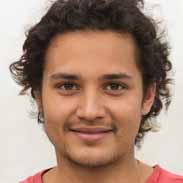Chapter 7- LTM: Encoding, Retrieval, and Consolidation – Flashcards
Unlock all answers in this set
Unlock answersquestion
Encoding
answer
the process of acquiring information and transferring it into LTM
question
What are the two types of encoding?
answer
maintenance rehearsal and elaborative rehearsal
question
Retrieval
answer
the process of transferring information from LTM to working memory
question
Maintenance rehearsal
answer
no consideration of meaning or making connections with other information
question
Elaborative rehearsal
answer
provides an example of being able to remember something by considering the meaning or making connections to other information
question
Elaborative rehearsal of a word will LEAST likely be accomplished by
answer
repeating it over and over
question
Levels of processing theory
answer
early idea linking the type of encoding to retrieval
question
According to the levels of processing theory, memory durability depends on how information is
answer
encoded
question
The elaborative rehearsal task of learning a word by using it in a sentence is generally most effective if the generated sentence is
answer
complex
question
Depth of processing
answer
distinguishes between shallow processing and deep processing
question
Shallow processing
answer
involves little attention to meaning
question
What is an example of shallow processing?
answer
questioning the feature of the word
question
Deep processing
answer
involves close attention, focusing on the items meaning and relating it to something else
question
What is an example of deep processing?
answer
asking if the word rhymes with another word
question
What is an example of the deepest processing?
answer
fill in the blank that is in the sentence
question
To measure depth and depth what can't you use?
answer
performance and predicted performance
question
Paired-associate learning
answer
a list of word pairs is presented
question
Self-reference effect
answer
memory is better if you are asked to relate the word to yourself
question
Generation effect
answer
memory for material is better when a person generates the material him- or herself, rather than passively receiving it.
question
Free recall
answer
participant asked to recall the stimuli with no aid (Memorization)
question
Retrieval cue
answer
a word or other stimulus that helps a person remember information stored in memory
question
What are the three factors that aid encoding?
answer
create connections, active creation, and organization
question
Create connections
answer
imagery and link to self
question
Active creation
answer
generate information and testing
question
Organization
answer
recall by groups, present in an organized way, meaningful framework
question
Bransford & Johnson (1972) did an experiment with organization about
answer
one group got the picture first then the passage, another group got the passage first then the picture, the control group just got the passage
question
In Bransford & Johnson (1972) which group recalled more information?
answer
the group that was given the picture first then the passage (the reason why is the definition to organization)
question
Practicing retrieval
answer
testing following learning results in better memory than rereading material after learning
question
Encoding specificity
answer
states that we encode information along with its context
question
Godden & Baddeley's (1975) did a study with participants who studied underwater and on land. What did he find?
answer
best recall occurred when encoding and retrieval occurred in the same location
question
State-dependent learning
answer
learning that is associated with a particular internal state, such as mood or state of awareness
question
What is an example that demonstrates state-dependent learning
answer
Although Emily doesn't very often think about her first love, Steve, she can't help getting caught up in happy memories when "their song" (the first song they danced to) plays on the radio.
question
Transfer-appropriate processing
answer
better performance when the type of processing matches in encoding and retrieval
question
Consolidation
answer
the process that transforms new memories from the fragile state, to a more permanent state
question
According to memory research, studying is most effective if study sessions are
answer
short and across several days
question
Synaptic consolidation
answer
takes place over minutes or hours, involves structural changes at synapses
question
Systems consolidation
answer
takes place over months or even years, involves gradual reorganization of neural circuits within the brain
question
Donald Hebb proposed that memory is represented in the brain by structural changes in all of the following EXCEPT the
answer
neurotransmitters
question
Long-term potentiation (LTP)
answer
enhanced firing of neurons after repeated stimulation
question
Standard model of consolidation
answer
retrieval depends on hippocampus during consolidation; after consolidation hippocampus is no longer needed
question
Multiple trace hypothesis: Reactivation
answer
process in which the hippocampus replays the neural activity associated with memory
question
Where does memory occur in the brain?
answer
medial temporal lobe; hippocampus, and perirhinal cortex
question
What can you do to force consolidation?
answer
sleep
question
Retrograde amnesia
answer
loss of memory before the injury
question
Anterograde amnesia
answer
loss of memory after the injury
question
Your book explains that brief episodes of retrograde amnesia; e.g., the traumatic disruption of newly formed memories when a football player takes a hit to the head and can't recall the last play before the hit; reflect
answer
a failure of memory consolidation
question
Graded amnesia
answer
amnesia tends to be most server for events that happened just before the injury and to become less severe for earlier events
question
Multiple trace model of consolidation
answer
the hippocampus is involved in retrieval of episodic memories, even if they originated long ago
question
Reconsolidation
answer
process of consolidating the information that is at the fragile state
question
Treatment of PTSD has benefitted from recent research on
answer
reconsolidation for people who are suffering from this condition
question
Spacing effect
answer
memory is better when studying at short periods of time verses long periods of time



